In today’s digital landscape, businesses of all sizes rely heavily on software to streamline operations, enhance efficiency, and gain a competitive edge. While off-the-shelf software solutions offer convenience, they often lack the tailored functionality required to meet specific business needs. This is where custom software development companies step in, offering bespoke solutions designed to address unique challenges and unlock unparalleled potential.
What are Custom Software Development Companies?
Custom software development companies are specialized firms that design, develop, and implement software applications tailored to the specific requirements of individual clients. Unlike generic software packages, custom software is built from the ground up, addressing unique workflows, processes, and data structures. This bespoke approach ensures a perfect fit, maximizing efficiency and minimizing wasted resources.

Source: reverbtimemag.com
Key Characteristics of Custom Software Development Companies:
- Client-centric approach: They prioritize understanding client needs and translating them into functional software solutions.
- Agile methodologies: Many employ agile development methodologies, allowing for iterative development, flexibility, and quick adaptation to changing requirements.
- Specialized expertise: They possess expertise in various programming languages, frameworks, and technologies to create robust and scalable applications.
- Project management capabilities: They manage projects effectively, ensuring timely delivery and adherence to budget constraints.
- Post-launch support and maintenance: They typically offer ongoing support and maintenance services to ensure the long-term success of the software.
The Custom Software Development Process: A Step-by-Step Guide
The process of developing custom software typically involves several key stages:

Source: techkors.com
1. Requirements Gathering and Analysis

Source: thinkmobiles.com
This crucial initial phase involves close collaboration with the client to thoroughly understand their business needs, goals, and expectations. This often includes detailed interviews, workshops, and documentation to define the software’s functionality, features, and performance requirements. Clear communication is paramount to avoid misunderstandings and ensure the final product aligns perfectly with the client’s vision. This stage also involves defining the scope of the project, including timelines and budget estimations.
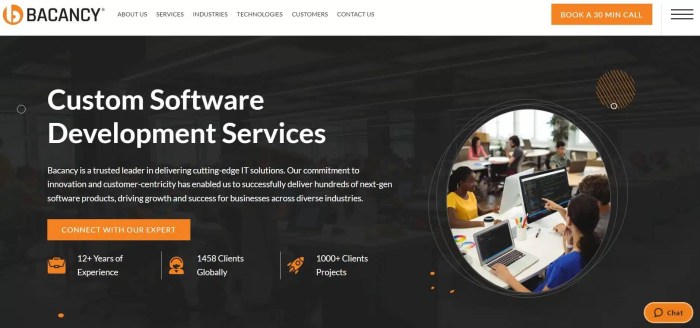
Source: netwebtechnologies.com
2. Design and Prototyping
Once the requirements are clearly defined, the design phase begins. This involves creating a detailed blueprint of the software, including the user interface (UI), user experience (UX), database design, and system architecture. Prototyping plays a vital role in this stage, allowing clients to visualize and interact with a preliminary version of the software, providing valuable feedback and enabling early identification of potential issues.
This iterative approach ensures the final product meets the client’s expectations.
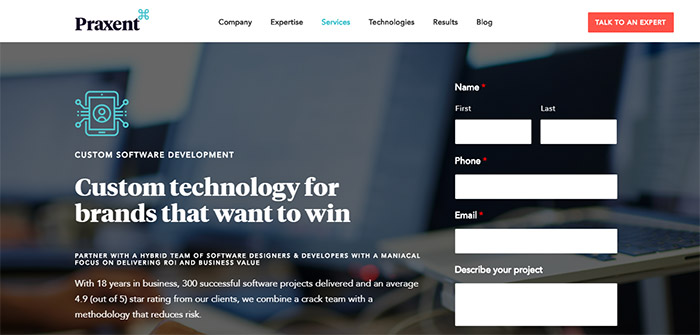
Source: thinkmobiles.com
3. Development and Coding
This is the core phase where developers write the actual code based on the approved design. The choice of programming languages and technologies depends on the project’s specific requirements. Version control systems are crucial for managing code changes, ensuring collaboration, and tracking progress. Regular testing is integrated throughout this phase to identify and rectify bugs early on, preventing costly delays later in the process.
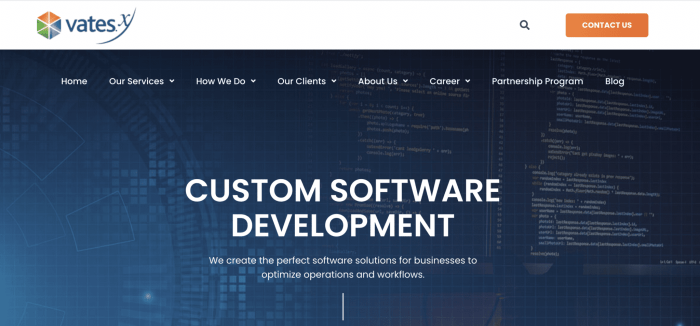
Source: buildfire.com
4. Testing and Quality Assurance (QA)
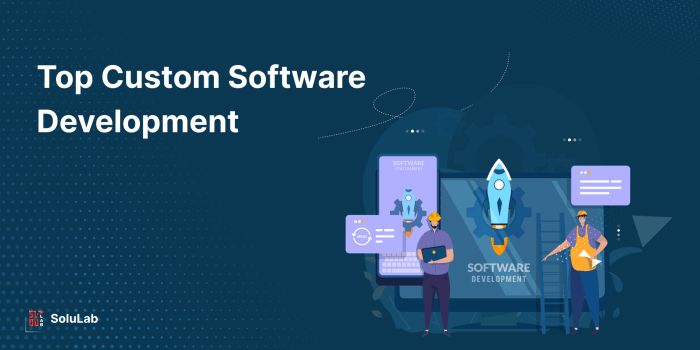
Source: solulab.com
Rigorous testing is essential to ensure the software functions correctly, meets performance standards, and is free of bugs. This involves various testing methods, including unit testing, integration testing, system testing, and user acceptance testing (UAT). UAT involves end-users testing the software in a real-world environment, providing valuable feedback and ensuring the software meets their needs. This phase is critical for delivering high-quality, reliable software.
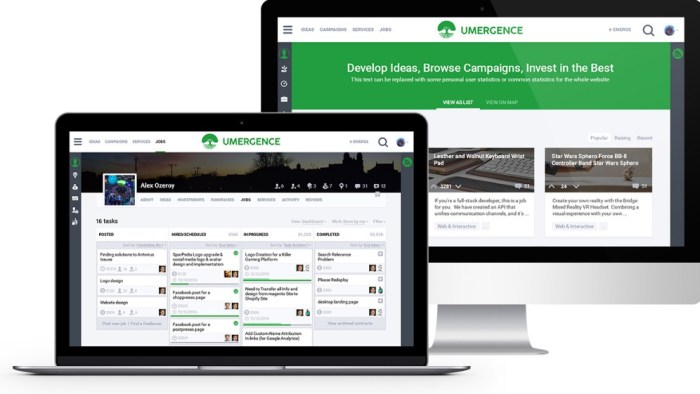
Source: thinkmobiles.com
5. Deployment and Launch

Source: influencermarketinghub.com
Once testing is complete, the software is deployed to the production environment. This may involve setting up servers, configuring databases, and integrating with existing systems. A smooth deployment process ensures minimal disruption to business operations. Post-launch support is crucial to address any unexpected issues and ensure the software continues to function optimally.
6. Maintenance and Support

Source: cronj.com
Even after launch, ongoing maintenance and support are vital. This includes addressing bugs, implementing updates, adding new features, and providing technical assistance to users. A well-defined maintenance plan ensures the software remains up-to-date, secure, and continues to meet evolving business needs. This ongoing support is crucial for the long-term success of the custom software solution.

Source: techwhoop.com
Choosing the Right Custom Software Development Company: Custom Software Development Companies
Selecting the right partner is crucial for the success of your custom software project. Consider these factors:

Source: solulab.com
- Experience and Expertise: Look for companies with a proven track record in developing similar applications and possessing the necessary technical expertise.
- Portfolio and Case Studies: Review their portfolio to assess their capabilities and the quality of their work. Case studies can provide valuable insights into their approach and previous successes.
- Communication and Collaboration: Effective communication is vital. Choose a company that prioritizes clear, consistent communication and collaborative working relationships.
- Development Methodology: Inquire about their development methodologies (e.g., Agile, Waterfall). Agile methodologies often offer greater flexibility and adaptability.
- Pricing and Contracts: Clearly define the scope of work, payment terms, and intellectual property rights in a comprehensive contract.
- Client References: Request references from previous clients to gain firsthand insights into their experience.
Types of Custom Software Development
Custom software development encompasses a wide range of applications, including:
- Web Applications: Software accessed through a web browser, offering scalability and accessibility.
- Mobile Applications: Applications designed for smartphones and tablets, leveraging mobile platforms like iOS and Android.
- Desktop Applications: Software installed and run directly on a computer, offering greater control and offline functionality.
- Enterprise Resource Planning (ERP) Systems: Integrated systems managing various business processes, including finance, HR, and supply chain management.
- Customer Relationship Management (CRM) Systems: Software designed to manage customer interactions and data.
- Data Analytics and Business Intelligence (BI) Solutions: Tools for collecting, analyzing, and visualizing data to support business decision-making.
Frequently Asked Questions (FAQ)
- Q: How much does custom software development cost? A: The cost varies significantly depending on factors such as complexity, features, development time, and the company’s hourly rates. It’s best to obtain detailed quotes from multiple companies.
- Q: How long does it take to develop custom software? A: Development timelines depend on project complexity and size. Smaller projects might take weeks, while larger projects can take months or even years.
- Q: What are the benefits of custom software development? A: Benefits include enhanced efficiency, improved productivity, better integration with existing systems, increased security, and a competitive advantage.
- Q: What is the difference between custom software and off-the-shelf software? A: Custom software is tailored to specific needs, while off-the-shelf software is a generic solution that may not perfectly fit your requirements.
- Q: How can I ensure the success of my custom software project? A: Thorough planning, clear communication, selecting a reputable development company, and consistent testing are crucial for project success.
Conclusion
Custom software development offers businesses the opportunity to create tailored solutions that precisely address their unique needs. By carefully selecting a reputable development company and following a well-defined process, businesses can leverage the power of custom software to drive efficiency, innovation, and growth. Investing in custom software is an investment in the future of your business.
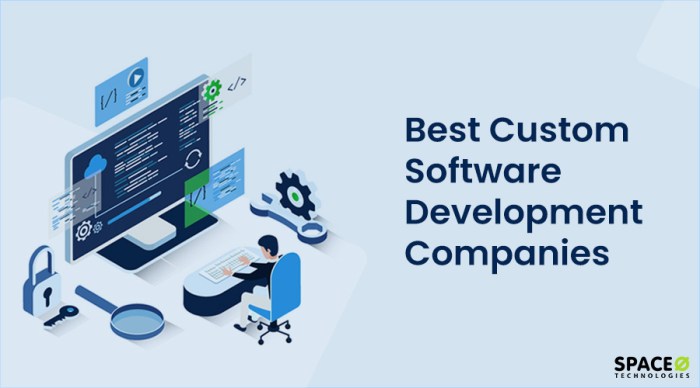
Source: spaceotechnologies.com
Call to Action
Ready to transform your business with custom software? Contact us today for a free consultation and let’s discuss your project requirements!

Source: hexxen.com
Essential FAQs
What is the typical cost of custom software development?
The cost varies significantly based on project complexity, features, development time, and the company’s hourly rates. It’s best to obtain detailed quotes from several companies.
How long does it take to develop custom software?
Development timelines depend on project scope and complexity. Smaller projects might take weeks, while larger, more intricate projects could take months or even years.
How do I choose the right custom software development company?

Source: optimole.com
Consider factors like experience, portfolio, client testimonials, communication style, and technological expertise. Request references and thoroughly vet potential partners.
What is the role of project management in custom software development?

Source: yoo.rs
Effective project management ensures the project stays on track, within budget, and meets deadlines. It involves clear communication, regular updates, and proactive problem-solving.
What happens after the software is launched?

Source: dignitas.digital
Many companies offer ongoing maintenance, support, and updates to ensure the software continues to function optimally and adapt to evolving needs.
